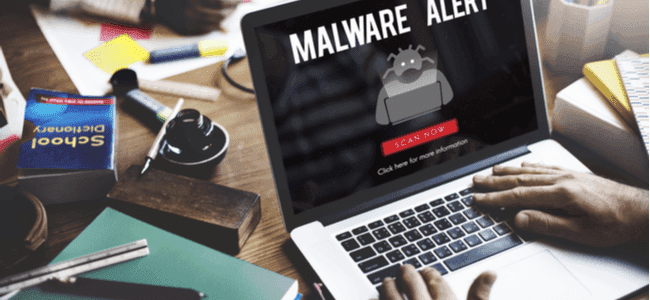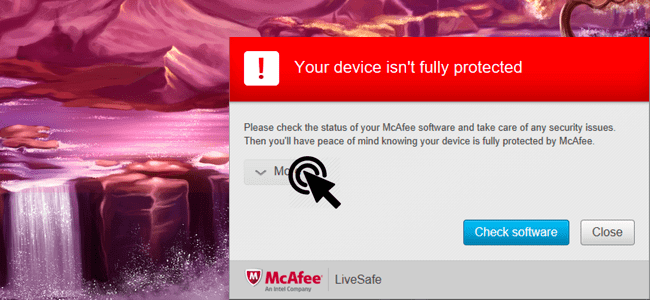How To Protect Yourself From Cybercrime During 2020 Elections

As Americans gear up for the 2020 Presidential election, federal authorities have advised voters to stay aware of scammers. Over the years, politicians and their supporters have started using the internet to run election campaigns. This approach has opened back doors for cybercriminals who wish to target voters.
Microsoft recently warned that the Russian military intelligence unit that had earlier attacked the Democratic National Committee in 2016 is back at it again. The company also stressed that this time hackers are prepared to use more sophisticated and targeted attacks to scam people and spread misinformation.
Keeping this in consideration, the Cybersecurity and Infrastructure Security Agency and the FBI have jointly issued an announcement highlighting the rise of election-themed cyber crimes such as phishing URLs, fake email domains, and fraudulent websites.
Read on to learn more about how to protect yourself from cybercrime related to the upcoming elections.
Why Does The Risk of Cybercrime Increase During Elections?
Cybercrime and elections go hand-in-hand. There are numerous threats to look out for, such as account hacks of political figures, data leaks, spreading misinformation through fraudulent websites and social media, and duping voters to give away their personal information.
Increased digitization and the surge in online campaigning has led to newer cyber risks. To add to the trouble, Russian, Iranian, and Chinese intelligence units have been interfering in the American polls and hacking organizations for quite a while now. In an alarming press release, Microsoft acknowledged that it had detected attempts to compromise email and social accounts of people and companies associated with the 2020 Presidential nominees.
With the current COVID-19 situation and inclusion of polling technologies, the chances of ballot fraud, voter manipulation, and data leaks are a major concern. Several previous case studies have specified a broad spectrum of fraud possibilities, including identity theft, data breaches, fake voter registrations, and so on.
According to the FBI, scammers use fraudulent domain names and email addresses posing as legitimate officials. These hackers will trick voters into giving away their personal information and infect their devices with malware.
What Are the Potential Cyber Threats?
Overall, cyber protection is a major factor in risk management for the 2020 election. Voters are the primary targets of these poll-themed attacks. The FBI and the NSA have pointed out some potential threats you should keep an eye out for. These include:
- Spoofed internet domains: Political parties and candidates have created and maintained websites to communicate with the voters. These websites and the related emails will have a registered domain that’s easily recognized by the general population. Hackers use spoofed internet domains that look almost identical to the original domain. They’ll use these names to redirect unsuspecting users to a phishing page which either installs malware on the device or steals user information
- Spoofed email domains: Similar to website domains, email domains are spoofed as well. Cybercriminals use fake email addresses to send out e-messages that contain malware attachments or phishing links
- Discourse manipulation and fake news: This is probably the most common threat that peaks during elections. Counterfeit websites and social media pages spreading misinformation and peddling fake news is a common thing. Some hackers go as far as compromising original accounts of persons and organizations associated with political parties to spread deceiving info and manipulate voters
- Identity theft: By clicking on any fraudulent website or phishing email, you risk losing your personal information. Hackers may install spyware and keyloggers or trick you into entering your personal information on duplicate websites
- Hacking: The ballot process is vulnerable to hacking. Voting machines, voter databases, and registration IDs can be hacked and manipulated to sway results
- Phishing: Phishing attacks are very common, but they pick up even more momentum during the election season. Keep an eye out for spoofed email domains or fake URLs aimed at stealing data
How To Protect Yourself From Electoral Malware?
As a voter, it’s becoming more challenging to stay abreast of the ever-increasing list of election-themed cyberthreats. To help you better protect yourself, here are a few 2020 election cybersecurity best practices:
- Keep yourself informed on what’s happening, especially news that covers elections and related threats. If you’re aware of the hazards, it’ll be easier for you to identify and avoid them
- You shouldn’t start believing (and sharing) everything you see on the internet. It’s essential to fact-check information and differentiate credible sources from the fake ones
- Before clicking on a link or opening an email, make sure to verify the spelling of the web addresses and email domains. Most hackers use spoofed addresses that look similar to original websites. Click on a link only when you have validated it to be trustworthy
- Update the antivirus and your device’s OS to counter new threats (zero-day attacks, malware, and phishing). Run regular scans on your devices and use a web shield when browsing the internet
- Use a modern antivirus that offers email scanning, real-time threat detection, and other necessary security features
- To stop prying eyes, you can also use a VPN and add firewall protection. It’ll help you encrypt all of your personal and financial information
- Enable two-factor authentication for your social and banking accounts. If needed, use a password manager tool to add robust and unique passcodes for every account
- Double-check before providing any personal information on websites and apps. Remove unused programs and applications. Above all, don’t download software from unverified third-party websites
Bottom Line
As the electoral process gets more and more digitized, cyber threats will increase. The only way to keep yourself protected from these attacks is to stay aware. Make sure to follow credible sources and stay away from fake news, manipulative posts, and unverified claims.
Follow the tips listed above to keep yourself and your dear ones safe. We also encourage you to report information concerning any suspicious activity by visiting the FBI's Internet Crime Complaint Center. For more assistance, check out the official websites of Protected Voices, Election Crimes and Security, and #Protect2020.




